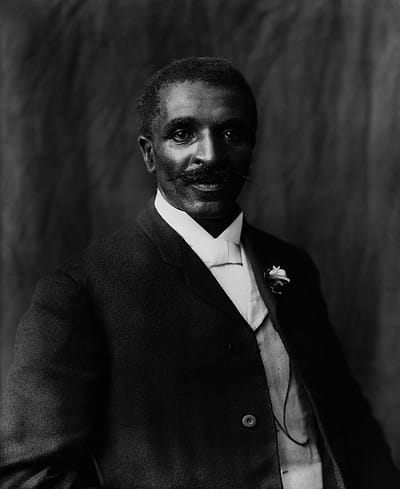Most Kansans do not realize the connection that George Washington Carver has to the state. Rotarian Jim Peters explained that Carver not only attended school in Kansas but also homesteaded here early in his life.
A scientist, inventor, artist, and musician, Carver was born a slave around 1864 in Missouri on the farm of Moses and Susan Carver, a couple who were among the first settlers in the area. Carvers were unionists and anti-slavery. When the Civil War ended, the Carvers rescued George and his half-brother and raised them as their own children.
Because he was sickly, Susan kept George away from heavy outdoor work and taught him to help with household chores. Cooking, cleaning, doing laundry, and performing other domestic tasks turned out to be the way that Carver earned his way through school. As early as age 10, he walked to the town of Neosho, Missouri, to attend the only school available to Black children, rooming there with Mariah Watkins, herself a former slave, in exchange for doing domestic chores.
When the talented boy needed a better school, he moved to Fort Scott, Kansas, 75 miles away and once again cooked and cleaned for wealthy families in order to stay support himself. During that time, Carver witnessed a lynching, upsetting him so much that he left the city. Eventually, he earned a high school diploma in Minneapolis, KS.
When Carver was denied admission to a college in Kansas City because of race, he decided to take advantage of the Homestead Act and try farming, joining a friend to start the town of Beeler in central Kansas. He soon realized that farming was not what he wanted to do, so he went to Iowa to attend college again, enrolling at Simpson in Indianola where he studied art. Carver studied agriculture at Iowa State University in Ames, IA, again supporting himself with a laundry business. He was the first Afro-American to earn a Masters degree in agriculture.
Booker T. Washington recruited George to teach at Tuskegee University in 1896. Carver spent the remainder of his life there, teaching, starting the agriculture department at the school, and inventing numerous items to improve farm production processes.
